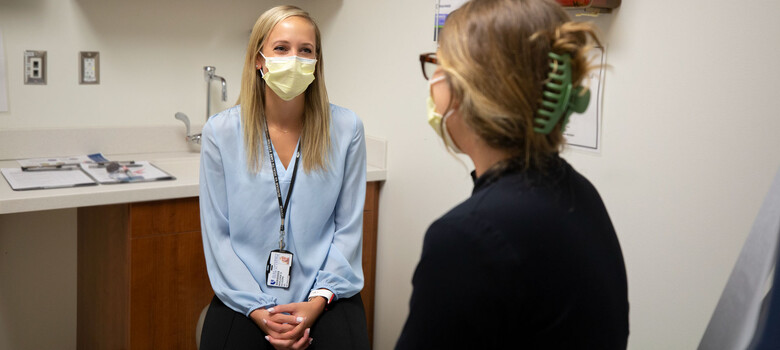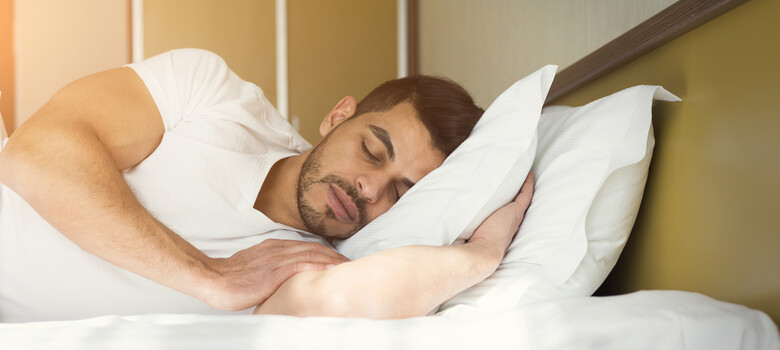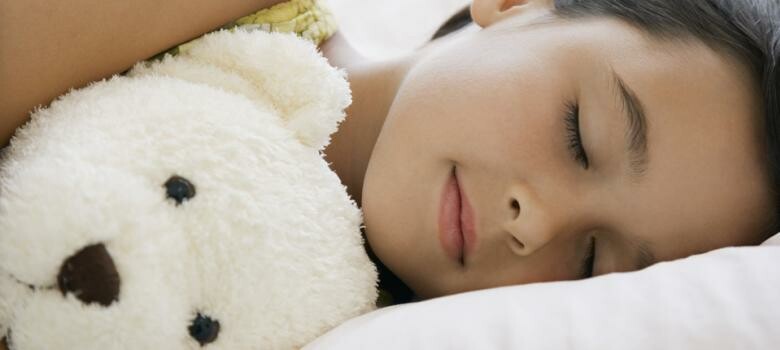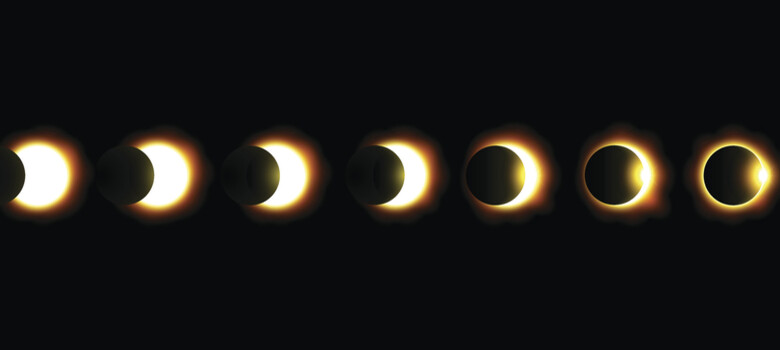 From the DukeHealth.org archives. Content may be out of date.
From the DukeHealth.org archives. Content may be out of date.
A Vicious Cycle: Insomnia, Anxiety, and Depression

Heed this condition — it could lead to early detection of mental disorders and other illnesses.
Chronic insomnia can increase a person’s chances for developing anxiety disorders and depression, according to a study conducted by Dag Neckelmann, MD, PhD, of the Department of Psychiatry at Haukeland University Hospital in Bergen, Norway.
The study, published in the July 1, 2007, issue of the journal SLEEP, was based on data collected from 25,130 adults from two general health surveys conducted over a 10-year period. Neckelmann found significant associations between the long-term course of chronic insomnia and the development of anxiety disorders and depression.
Compared to the group of participants without chronic insomnia in both surveys, the group with chronic insomnia had increased associations with anxiety disorders and depression. Those subjects who reported that they had insomnia during the initial survey had a higher risk of developing an anxiety disorder during the second phase of the study conducted 10 years later.
The findings were upheld even when factors such as the patients’ age, gender, and educational level were taken into consideration.
What Is Insomnia?
Insomnia is a type of sleep disorder in which a person has trouble falling asleep, staying asleep, or waking up too early. These disorders may also be characterized by an overall poor quality of sleep. Insomnia is the most commonly reported of all sleep disorders.
About 30 percent of adults have symptoms, but less than 10 percent are likely to have chronic insomnia. It is more common among older adults and women.
“Chronic insomnia is a marker of both anxiety disorder and depression,” said Neckelmann. “From a clinical point of view, these results imply that individuals reporting chronic insomnia, in addition to receiving adequate treatment for their sleep disturbance, should be carefully examined for the presence of anxiety disorder as well as depression.
“Focusing on chronic insomnia as a symptom of both anxiety and depression may result in the early detection of a mental disorder, as well as the detection of other illnesses or conditions that may be present,” he added.
Although it was not proven in this investigation, Neckelmann speculates that alleviating chronic insomnia may reduce the risk of developing anxiety disorders. If you think you have insomnia or another sleep disorder, discuss the problem with your primary care physician, who then can refer you to a sleep specialist. Most sleep disorders can be treated with non-drug options.
The View from Duke
"Chronic anxiety often prevents a person from falling to sleep, but once they do fall asleep, they sleep soundly," said Dan G. Blazer, MD, a Duke psychiatrist. "The depressed may fall asleep without that much difficulty but then sleep lightly and awaken frequently during the night, especially toward the end of the night. Yet many people experience insomnia who are not overtly depressed or anxious, especially the elderly.
"These investigators from Norway have documented that insomnia may predispose people to anxiety and depression, just as anxiety and depression may predispose people to insomnia. As the authors note, insomnia may be an early or even the first symptom of depression and anxiety. Clinicians and their patients should take note."



